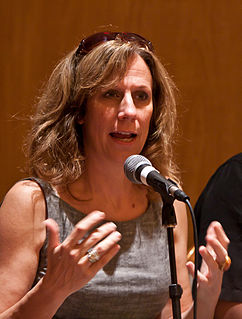A Quote by Chitra Ganesh
I'm interested in representation that falls outside of what would be socially appropriate, or acceptable, or beautiful. The world is going through a very fundamentalist moment. You have right-wing politics and misogyny and religion employed together everywhere - here in the US, with issues like abortion. Religion is a very fraught and complicated topic, but at the same time, like all grand historical narratives, there is a potential for challenging, or rethinking the kinds of subjectivities that these meta-narratives produce.
Quote Topics
Abortion
Acceptable
Appropriate
Beautiful
Challenging
Complicated
Employed
Everywhere
Falls
Fraught
Fundamentalist
Going
Grand
Historical
Interested
Issues
Kinds
Like
Misogyny
Moment
Narratives
Outside
Politics
Potential
Produce
Religion
Representation
Rethinking
Right
Right-Wing
Same
Same Time
Socially
Through
Time
Together
Topic
Us
Very
Wing
World
Would
Would Be
Related Quotes
It's really nice to see that, looking at all sides of the abortion issue - from the person who doesn't want to have kids so they're going to have an abortion and that's not traumatic for them, to somebody who loses a wanted pregnancy, to somebody who has complicated feelings because of their religion. We can talk about all of those complicated and individual stories and not feel like there's any one abortion story that's right or wrong.
The City's going to be very very beautiful! Its going to be like a beautiful beautiful park in some places, and there in the lower level where the river flows right through the City there's going to be these beautiful trees growing on both sides, fruit trees with 12 different kinds of fruit, a different kind every month, think of that!-And leaves that'll be able to heal the people outside the City that are still sin-sick, and sick of their disobediences and their rebellion against God. We're going to be able to take those leaves outside and heal them!
Generally, I start by observing the existing and popular narratives in my social spheres and media, and the pressures I face in my own life experiences. As someone who is "newly" trans, I am constantly thinking about what the dominant narratives are around transness, how my work can push against these narratives, and how it already falls into these traps.
I was raised with this consciousness of being part of this global Muslim community. At the same time, I didn't even know if I wanted to be Muslim. It was this incredibly complicated moment: I just needed to balance these two things where you care about people on some deep level who are my co-religion and are being killed because of their religion. Then, at the same time, I'm like ah, I don't really know if I want this.
When you start talking about same-sex marriage, you start talking about abortion, and I think those issues are very very important and very interesting and very right for us to talk about, but when we allow those issues to cannibalize all other issues we find ourselves homeless while we debate about it.
I'm interested in the origins of the religious experience, how the history of religion has evolved over the last umpteen thousand years, and where religiosity is going in the future. I think that's a topic I've been chewing on for a few years; I would love to eventually work on and produce a book out of it.
It is very clear from the historical record that without British help neither Wahhabism nor the House of Saud would be in existence today. Wahhabism is a British-inspired fundamentalist movement in Islam. Through its defense of the House of Saud, the US also supports Wahhabism directly and indirectly regardless of the terrorist attacks of September 11, 2001. Wahhabism is violent, right wing, ultra-conservative, rigid, extremist, reactionary, sexist, and intolerant.
It is however, difficult to make your narratives relative by yourself. A novelists' work is to provide models to make your narratives relative. If you read my novels then you may feel, "I have the same experience as this narrative", or "I have the same idea as this novel". It means that your narrative and mine sympathize, concord and resonate together.
Political organizations have slowly substituted themselves for the Churches as the places of believing practices, but for this very reason, they seem to have been haunted by the return of a very ancient (preChristian) and very “pagan” alliance between power and religion. It is as though now that religion has ceased to be an autonomous power (the “power of religion,” people used to say), politics has once again become religious.
































